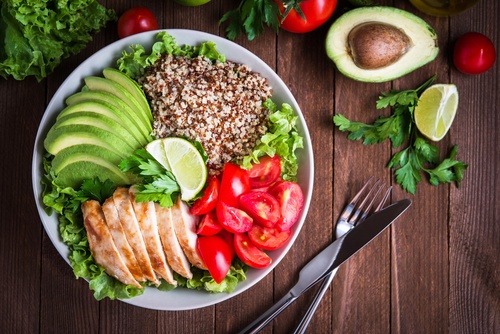By Rivky Blumenfeld, Lubicom Staff
Yom Kippur is already tomorrow night (can you believe it!?) and aside from davening, what usually scares everyone is fasting, because let’s face it: fasting is difficult! That being said, fasting can be ‘hacked’ and made more manageable, if not easier. The following ten tips are your key to making this Yom Kippur your easiest yet!
1. Switch up your eating schedule.
Our bodies are like machines and they tend to run on an internal clock. So, people tend to get sleepy at the same time every night, or hungry at certain times during the day. Your body knows when you are going to feed it, and you tend to feel hungry by your normal mealtime. Your body starts to work its digestive magic around the time you usually have your meals, and on Yom Kippur your body won’t suddenly change course. If you vary your eating patterns a few days before the fast, you may find that the gurgling you normally feel at precisely 12:30 eases, and you can fast more comfortably.
2. Avoid caffeine withdrawal.
This may seem hard, but in the week before Yom Kippur, decrease your intake of caffeine, whether it’s from coffee, soda, tea, or any other source. This way, you won’t go through the dreaded caffeine withdrawal headache that plagues everyone who was still drinking their daily intake the day before the fast.

3. Hydrate.
And I’m not talking about chugging down a water bottle two minutes before the fast begins. You should be focusing on your water intake a day or two before Yom Kippur so you can be properly hydrated. And no, coffee and soda don’t count as liquids. Water is what you should be drinking, so you can concentrate on davening and not the thick fuzzy feeling you get on your tongue when you don’t drink enough. Keep in mind that the human body can survive over two weeks without food, but without water, the body can’t survive more than a week (and that’s a generous estimation) so get sipping!

4. Try to avoid any spicy and salty foods.
They will only make you thirstier later on while fasting, even if you drink water while eating. Some salty foods include crackers, pretzels, and chips, pickles, and olives, etc. Also, anything you know your body will react negatively to should be avoided, like dairy products for example if you’re lactose intolerant. Stick to simple foods and save the rugelach and cake for after the fast.
5. Eat in moderation.
The hours before the fast begins are not the time to stuff food down your throat and call it a day. It won’t do you any good. Be sure not to overeat, and make sure to get sufficient protein (light protein, like chicken – avoid heavy meats) and carbohydrates in your meals. This is not the time to remember your no-carb diet; indulge in a slice of bread (or two) and you’ll be fuller for a longer period of time.
6. Don’t talk about it.
Talking about fasting while fasting seems to be a ritual at this point; kvetching and complaining are part of the routine. You may think that talking about it will relieve some of the pain, but in actuality it makes it worse. By talking about how hungry you are, you are actively focusing on it, and that makes it so much worse. By making fasting a small factor of the day in your mind, the hunger pains won’t feel so awful.

7. Layers.
Bring a shawl, cardigan, or jacket to shul with you. Wearing layers can help you adjust to temperatures beyond your control, like when shul is freezing cold. Your body needs a certain number of calories to burn in order to create heat, so when you’re fasting you will naturally feel colder than usual – so bring a sweater to stay cozy and warm!

8. Spice it up.
Literally. Some people find that by smelling spices they feel less hungry, so give it a try this Yom Kippur and you may find a new trick to quelling your hunger. Grab some cinnamon or besamim and take a whiff when you feel your energy waning. You may be surprised by how it can revive you and help you feel alert!
9. Take it easy.
Yom Kippur is not the time to be running around or exerting yourself more than necessary. Before, during, and even after the fast should be a time to conserve energy. Even if you feel like you’re not doing any strenuous physical activity on Yom Kippur, your body certainly feels it, and that’s why people tend to feel exhausted as the fast comes to an end. Do yourself a favor and conserve your energy.
10. About ending the fast, do it slowly.
I’m definitely guilty of eating way too much, way too fast and I certainly feel the consequences later. Start by breaking your fast with liquids, which can be absorbed quickly and rehydrate you. Then slowly move on to all those delicious treats, but remember to not eat them too quickly! When you eat too quickly you don’t notice if you’re full or not, and your stomach may be sending you distress signals that it’s reached capacity without you noticing – because you’re too focused on inhaling what’s in front of you! Slow it down; the food will still be there tomorrow, and your stomach will thank you.
All this being said, if you have extenuating circumstances (like pregnancy, or G-d forbid, illness, etc.) don’t just follow this advice; call your Rav and ask a shailah, and you can’t go wrong!
I hope everyone has an easy and meaningful fast, and hopefully you can take these tricks into your fasts year-round!





